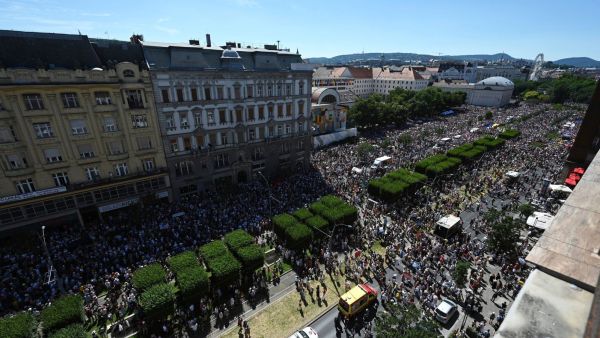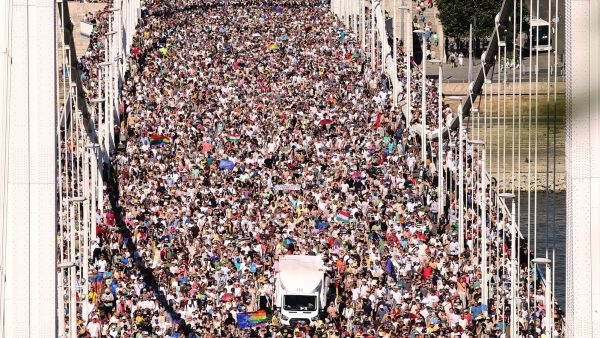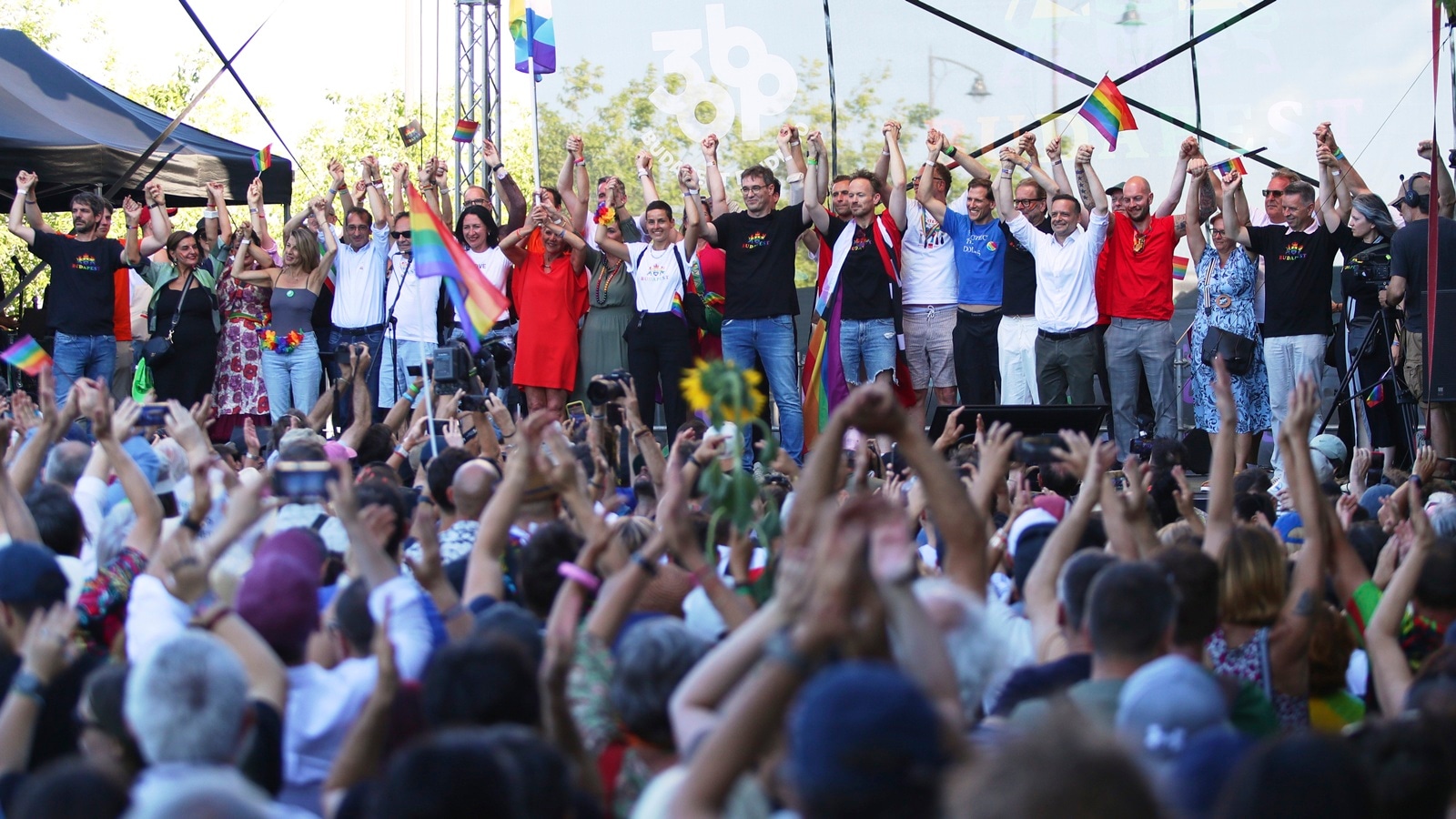Tens of thousands of protesters marched through the streets of Hungary’s capital on Saturday, as a banned LGBTQ+ rights rally in Budapest turned into anti-government demonstration, defying defying Hungarian Prime Minister Viktor Orban’s legal threats against the LGBTQ rights activists and making it one of the biggest shows of opposition during Orban’s tenure.
Despite mounting pressure from the ruling nationalist conservative politicians and the police of a major crackdown over the display of pro-LGBTQ material, the organisers estimate that more than 200,000 people may have part in the rally, while some of the demonstrators carried placards saying “Solidarity with Budapest Pride”, BBC reported.
Eszter Rein Bodi, one of the protesters, said “This is about much more, not just about homosexuality…This is the last moment to stand up for our rights,” Reuters reported. Protesters risked potential police crackdown and heavy fines to participate in the 30th annual Budapest Pride, which has already been declared illegal by Orban’s government in March.
 Participants gather during the Budapest Pride march in Budapest, Hungary. (AP)
Participants gather during the Budapest Pride march in Budapest, Hungary. (AP)
Why are people protesting in Budapest?
Huge crowds swelled the streets of Budapest on Saturday against the systemic curtailment of rights of the LGBTQ+ community by the Orban’s government in the past decade, and recently in March, a law was passed by the lawmakers that allowed for the ban of Pride marches, as it cited the need to protect children.
Police in Hungary had issued orders to ban any protests or demonstrations in favour of Pride rallies with a new “child protection” law restricting gatherings considered to be promoting homosexuality. The opposition in Hungary see the move by Orban’s administration as part of a wider crackdown on democratic freedoms ahead of elections next year.
Hungary PM Orban and his party have held that Pride, a celebration of LGBTQ+ visibility and struggle for equal rights, is a violation of moral and spiritual development of children’s rights.
How has Prime Minister Orban responded?
PM Orban-led government passed a legislation in March 2025 to curtail the Pride events being held in the country and restricted gatherings that were deemed to be promoting homosexuality. The controversial legislation also allowed the authorities to use facial recognition technology to identify all those taking part in the protest rally.
We hosted a delegation of Belgian political and civil society representatives who came to #Budapest to celebrate Pride. 🇧🇪🏳️🌈
Belgium is proud to stand in solidarity with the Hungarian #LGBTQI+ community. European values are rooted in respect, solidarity, and freedom for all. 🌈 pic.twitter.com/NiSjOKf1iq
— Embassy of Belgium in Budapest (@BelgiumBudapest) June 28, 2025
PM Orban, reacting to the recent protests and Pride rally in Budapest, declined the possibility of violent clashes between police and demonstrators but the leader of the right-wing populist governing party warned of potential legal repercussions for attendees.
Story continues below this ad
“Of course, the police could break up such events, because they have the authority to do so, but Hungary is a civilised country, a civic society. We don’t hurt each other,” Orban said, according to BBC.
What is the penalty for taking part in Pride protest?
PM Orban has said that there will be “legal consequences” for those taking part in the Pride protests, being held for the rights of LGBTQ+ community. Attendees risk a fine of up to $586 (€500, £427) and they can be recognised via facial recognition.
 Participants in the Pride march cross the Elisabeth Bridge in Budapest, Hungary. (AP)
Participants in the Pride march cross the Elisabeth Bridge in Budapest, Hungary. (AP)
Other than attendees, the organisers of the Pride rally could face prison sentences of up to one year, reports stated.
What is Pride Day and why is it celebrated on June 28?
Pride Day is observed on June 28 every year to commemorate the Stonewall riots held in 1969. On that day, the gay community reportedly stood up against the raids by the New York Police Department on the Stonewall Inn bar in Manhattan, which was known as the meeting place of the community.
Story continues below this ad
A year later, Pride Parade started taking place on June 28 to support and protect the LGBTQ+ community and their rights.

